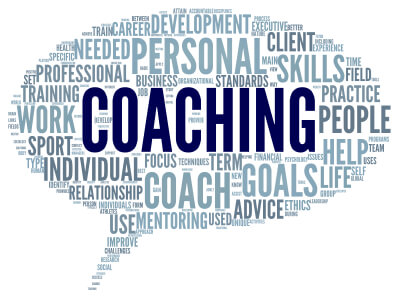 Increasingly, companies seeing the benefits of executive coaching are building internal coaching capabilities for high potential employees, a group for which it generally is not considered cost-effective to use external coaches. The programs vary widely in their quality. In fact, some have arisen ad hoc, while others have been planned carefully. Few, however, incorporate the rigor of strong external coaching. Here’s a list of issues to consider in designing a program whose quality will rival use of external coaches:
Increasingly, companies seeing the benefits of executive coaching are building internal coaching capabilities for high potential employees, a group for which it generally is not considered cost-effective to use external coaches. The programs vary widely in their quality. In fact, some have arisen ad hoc, while others have been planned carefully. Few, however, incorporate the rigor of strong external coaching. Here’s a list of issues to consider in designing a program whose quality will rival use of external coaches:
[list style=”tick”]
- Coaching focus. — Most executive coaching fits within several categories: developmental, promotional, corrective or holistic. It’s important to decided where to invest internal coaching resources. We actually keep a list of 23 coaching scenarios from which companies can decide the scope of their internal coaching programs.
- Coach population. — Who are you going to train as your coaches? HR managers, talent experts, line managers, HR business partners or some other group within the organization?
- Relationship to client. — Is it better for the coach to know the client or not? What conflicts arise if the coach also participates in a talent review where the client is discussed?
- Coach selection process. — Should individuals be able to self-nominate as coaches? Do they need to be recommended by their manager or through a selection process? Should eligibility be based on some kind of assessment process?
- Coaching process. — What process will be used in coaching conversations? Will the process be borrowed from an academic institution such as Columbia University, Georgetown University or NYU? Should the process be based on the International Coach Federation coaching process? Should the process come from the coaching literature?
- Training process. — How should internal coaches be trained? Should they be sent to formal coaching training at established institutions? Should a coaching firm or existing internal coaches deliver the training? Should a cadre of internal master-coaches-to-be receive formal training and then train future coaches?
- Certification. — Should trained coaches be certified under your coaching brand? And on what should be certification be based: course completion? Oral coaching exam? Written coaching exam? Other or some combination? Should you obtain recognized external certifications?
- Coach supervision. — Should internal coaches be supervised? By master coaches? By each other? Other?
- Use of assessments. — Should clients be given assessments before they are coached? And what should be assessed? Internal Motivators? Personality and thinking style? Derailers? Other?
- Use of 360 Feedback. — Should 360 feedback be included and how should it be done? Interviews by the coach? Use of an online tool? Other?
- Assignments of coaches. — How should coaches and clients be matched? Business unit assignment, assessments, coaching experience, business experience, other?
- Coaching tools and templates. — Are their specific tools and templates that coaches should be required to use in standardized formats? Development plans? Development effectiveness scorecards? Coaching logs? Other?
- Sponsorship. — Will there be a sponsor for each coaching assignment? And who should act as sponsor? HR business partner? line manager? a team of a few executives?
- Client selection. — Who would nominate a high potential employee for coaching? Business unit? HR business partner? Talent review? Self-nomination? Other?
- Program reporting. — What kind of reporting should be required for the overall program? Should it be done by business unit or centrally?
[/list]
These are the main issues to consider in designing a strong, rigorous internal coaching program. As the recognition of coaching value grows as a component of leadership development, companies need to apply real rigor in program design and operation. These questions are a very strong guide for doing this.






